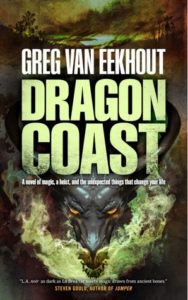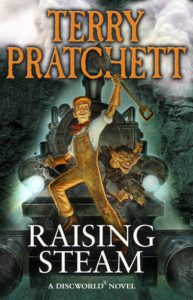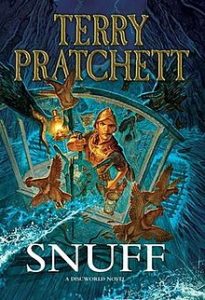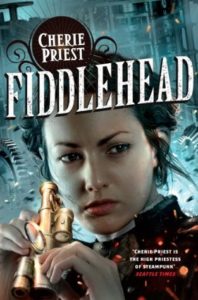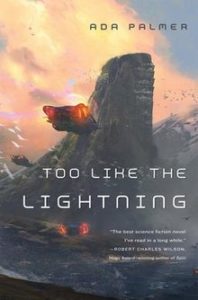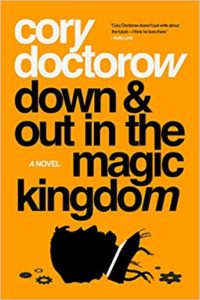Oh yuck, this has a sequel? Not that this wasn’t an entertaining book, but I liked how complete it was on its own. If anything, I’d like to read more of the fairy tales that are mentioned, but not fully imparted, over the course of this novel.
Okay, so there’s this journalist, Anna Parks, who goes missing for an extended period of time. When she returns, she changes her name to Anthea Proserpine, writes a book of fairy tales, then retreats to upstate New York to a secluded estate with her husband and daughter, Ella.
Years later, and Ella is constantly on the move with her own teenage daughter, Alice. Mother and daughter are exceptionally close, but for one thing: Ella wants nothing to do with Anthea or her estate, The Hazel Wood, or the book that made Anthea’s fame and fortune, Tales From The Hinterland. Alice doesn’t understand why. Nor does she understand the many fans and, bluntly, creepers who obsess over Anthea and, by extension, herself and Ella. But Alice is happy enough to respect her mother’s wishes… till the day Ella disappears, and Alice finds herself searching out The Hazel Wood for answers.
So this was a weird book for me. I very much enjoy fairy tales and their deconstruction and retellings, but I have to admit that I admired this novel as an exercise in such more than as a story. I enjoyed the philosophical questions Melissa Albert raises about storytelling and folklore and family and personality, but the pacing of her framing narrative didn’t quite work for me. Once Alice arrived at the Halfway Wood, the structure of her story overtook what, up till then, had been a vivid tale of personal choices. I did not enjoy losing everything that made Alice such a vital character to formula. Even though it was making a point about the genre, it made the story itself a whole lot less interesting for that stretch.
Which is a pity because Alice is one of the few modern protagonists allowed to be angry all the time. She’s violent, temperamental and self-absorbed, yet feels more excessively real than most fictional characters of any genre. There’s an especially awful interaction between her and Ellery Finch, the biracial schoolmate who is helping her, over a confrontation she has with a cop. Ellery tries to explain his well-founded concerns but she reacts exactly like a clueless, selfish white girl would. Alice can be awful, but that’s kinda the point of her, and I loved how Ms Albert was unafraid to portray all her flaws without condoning what she does.
Anyway, this was an interesting experiment in fairy tale deconstruction that had several distinct shortcomings in the storytelling but is still a worthwhile read, especially if you’re into metatextual fiction. Story-wise… eh. Maybe that’s something Ms Albert improves upon in the sequel.

